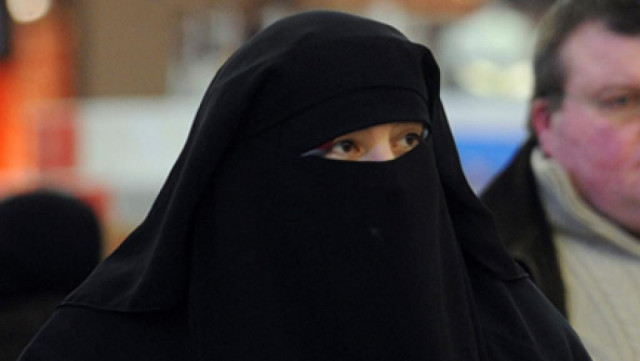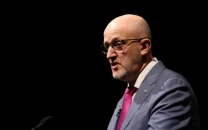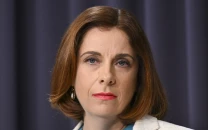Egyptian MP backs burqa ban, terms garment 'un-Islamic'
The Egyptian parliament debated a ban on full face veils in public places and government buildings in March

A woman wearing a burka. PHOTO: REUTERS
Lawmaker Amina Nasir said the Holy Quran only called for Muslim women to cover their hair. Nasir, also an Islamic philosophy professor at Cairo's prestigious Al-Azhar, said the niqab could pose a security threat with criminals donning the garment to remain anonymous.
German interior minister calls for partial burqa ban
A raging debate on women's clothing has been going on in Egypt of-late. The Egyptian parliament debated a ban on full face veils in public places and government buildings in March. Cairo University banned lecturers from wearing the niqab earlier this year following reports that the veils led to “poor communication” during lectures.
But Atif Makhalif, a member of the parliament’s human rights commission told the Sada al-Balad that a niqab ban would violate women's rights. “Everyone has the right to wear what they want, whether it’s a niqab or a miniskirt. It doesn’t go against Egypt’s national security,” the lawmaker said.
Austrian politicians call for ban on full body veil
In Egypt's October election, women will now be required to remove their niqabs to vote. Debates on banning full face veils have also been witnessed across the West this year.
A poll conducted earlier this month revealed that only one in four French Muslims supported women being afforded the right to don burqas. According to YouGov, an international internet-based market research firm, an overwhelming majority of the British public is also against full face veils.
Ten Muslim women wearing banned burkinis apprehended in Cannes
Last month, Austrian conservative politicians called for a ban on full face veils saying they impeded national integration. German Interior Minister Thomas de Maiziere has also spoken out in favour of a partial burqa ban amid a fierce national debate on integration.
This article originally appeared on International Business Times.



















COMMENTS
Comments are moderated and generally will be posted if they are on-topic and not abusive.
For more information, please see our Comments FAQ